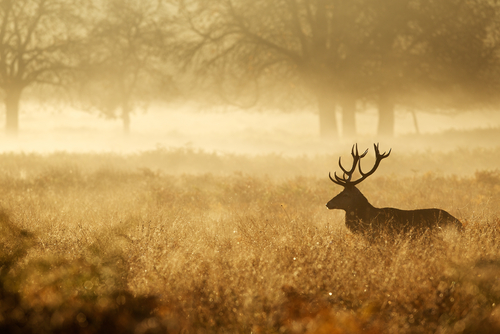Considering the rise in population since 1982, it’s surprising that there has been an overall drop in hunting enthusiasts since then. The drop in hunters endangers funds vital to supporting conservation efforts, which is why each hunter should be encouraged to teach hunting to young people within their families and communities. Today, we’re sharing our North Texas Hunting Ranch tips for new hunters in the hopes that they are helpful for you and any new hunters you may teach in the future.
Learn From a Mentor
YouTube and Instagram are entertaining, but they are no substitution for the invaluable knowledge you’ll gain by learning from an experienced mentor. Choose someone patient, lighthearted, and dedicated to the sport. Next, tag along when invited, and work hard to watch, listen, and learn as much as you can in the time you’re given.
You need to gather skills in scouting, stalking, calling, shooting, butchering, processing, and cooking. This list may seem daunting at first, but it also shows there’s never going to be a point at which you’ve learned all there is to know! This aspect of hunting is what keeps many enthusiasts engaged year after year.
Skip Expensive Gear at First
For many new hunters, it’s tempting to splash out on high-end gear, from camouflage and boots to the best blinds and navigation tools on the market. While there’s nothing wrong with investing in your hobbies, it’s a good idea to spend time out in the wild, waiting for hours in the crisp early morning air, before you go all in.
As long as your clothing is suitable to the season, reasonably waterproof, quiet, and not bright and flashy, you may find you don’t need to expand your wardrobe until the year following your first.
Choose One Species as Your Focus
For your first hunting season, you might feel excited about exploring all the species you can hunt in your neck of the woods. At Nine Bar Ranch, for example, over a dozen exotic species are available to hunt—and we recommend taking advantage of as many hunting packages as you can.
However, for now, choose the species local to you that you’re the most motivated to hunt. Then, spend time studying this species’s anatomy, behavior, movement, and sounds. Learn to stay as still as possible for as long as possible until you are able to reliably take down game most of the time you have the opportunity.
Get to Know Your Hunting Grounds
The first step in getting to know your species, though, will be learning your hunting ground intimately. Whether or not you’re actively hunting, get outside and learn the topography, weather patterns, typical sounds, and other animals that inhabit those same woods.
Embrace the Process, Not the Bag
As important as the results are to many hunters, we think it’s important that new hunters learn to embrace the process of hunting instead of deeming their hunts “successes” or “failures” based on whether or not they return home with a “trophy.” There’s value to be found in becoming completely familiar with preparing your gear, getting up early, choosing your hiding spot, putting your phone on silent, and settling down for a long, peaceful wait.
Finding happiness in displaying the discipline required to execute this routine repeatedly is, in our opinion, the mark of a hunter who has a long, happy hunting career ahead of them.

